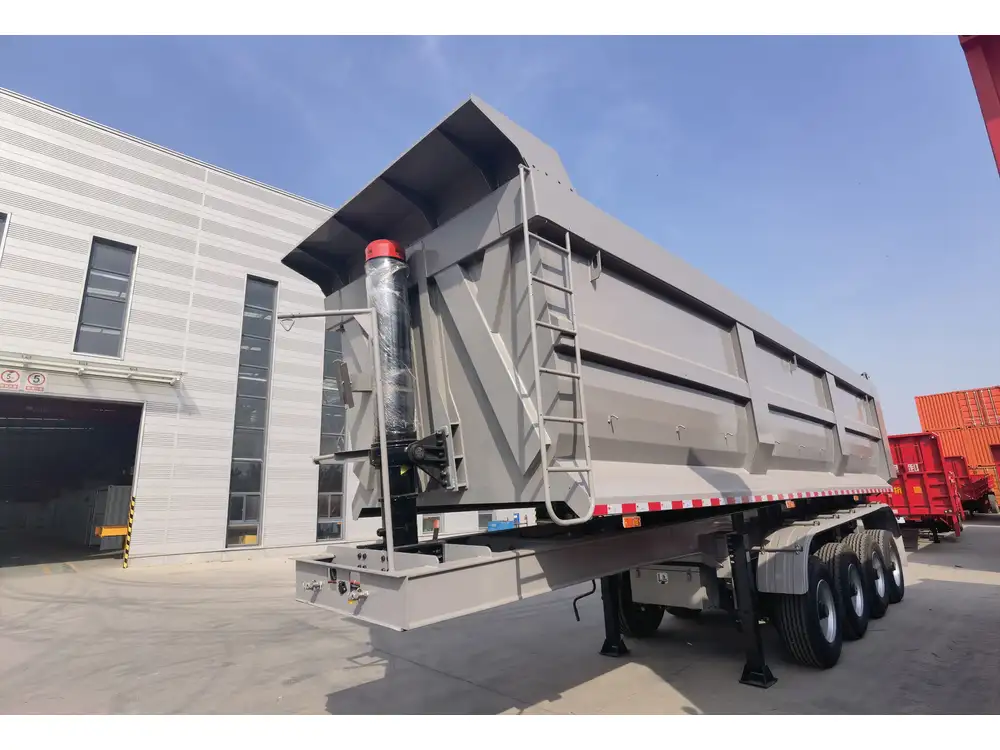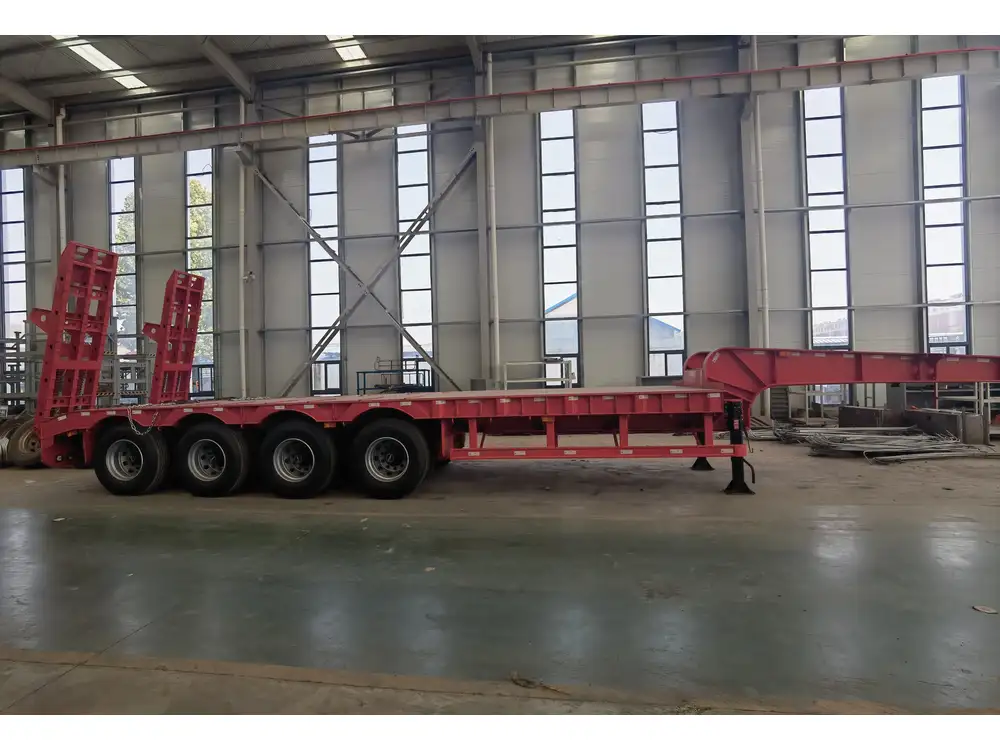Dump trailers, integral to construction, agriculture, and waste management industries, rely heavily on hydraulic systems for their operation. Understanding the hydraulic fluid that these trailers utilize is crucial for ensuring optimal performance, longevity, and safety. In this comprehensive guide, we delve deep into the types of hydraulic fluids ideal for dump trailers, their properties, and critical factors to consider for maintenance and selection.
Understanding Hydraulic Systems in Dump Trailers
Anatomy of a Hydraulic System
A hydraulic system primarily consists of a hydraulic pump, hydraulic fluid, hoses, cylinders, and linked controls. The pump generates pressure to move the fluid, which then actuates the cylinders to lift and lower the trailer bed. Key components include:
| Component | Function |
|---|---|
| Hydraulic Pump | Generates hydraulic pressure |
| Hydraulic Fluid | Transmits power and lubricates system components |
| Hoses | Convey fluid between the pump and cylinders |
| Cylinders | Convert hydraulic energy into mechanical work |
| Controls | Regulate fluid flow and direction |

Importance of the Right Hydraulic Fluid
Selecting the correct hydraulic fluid is paramount—not just for functionality but for overall system health. The right fluid ensures effective power transmission, lubricates components, prevents corrosion, and protects against wear and tear caused by environmental conditions.
Types of Hydraulic Fluids for Dump Trailers
Hydraulic fluids come in various types, each engineered to meet specific performance needs and environmental requirements. Below are the primary categories of hydraulic fluids used in dump trailers:
Mineral Oils
Mineral oil-based hydraulic fluids remain the most common, predominantly defined by:
- Viscosity: Essential for performance across temperature variations.
- Additives: Enhancements include anti-wear, anti-oxidation, and corrosion inhibitors.
- Benefits: High effectiveness, relatively low cost, and broad availability.

Biodegradable Hydraulic Fluids
For applications sensitive to environmental impact, biodegradable fluids serve as an eco-friendly alternative:
- Composition: Often derived from natural plant oils or synthetic esters.
- Benefits: Designed to break down quickly, reducing environmental harm.
- Usage: Increasingly popular in industries prioritizing sustainability.
Water-Based Fluids
Water-based hydraulic fluids, while less common, have specialized uses:
- Types: Water-glycol and water-oil emulsions.
- Properties: Excellent fire resistance and a good alternative for low-pressure systems.
- Caveat: May hold lower lubrication capabilities and can promote corrosion if not properly formulated.
Key Considerations When Choosing Hydraulic Fluid
Selecting the most appropriate hydraulic fluid goes beyond mere compatibility. Consider the following elements:

Operational Temperature Range
Hydraulic systems in dump trailers operate under varied conditions. It’s essential to choose a fluid capable of maintaining performance within your specified temperature range.
Viscosity Index (VI)
The viscosity index is a measure of how much a fluid’s viscosity changes with temperature. A higher VI indicates a more stable fluid under fluctuating temperatures, ensuring consistent operation.
Lubrication and Anti-Wear Properties
The right hydraulic fluid should provide adequate lubrication to minimize component wear. Look for fluids with well-rated anti-wear additives, enhancing equipment lifespan.

Environmental Impact
For companies committed to sustainability, consider biodegradable or environmentally friendly hydraulic fluids to minimize ecological footprints.
Compatibility with Materials
Different hydraulic fluids may react differently with various materials used in hydraulic systems. Conduct compatibility tests, particularly with seals, hoses, and gaskets, to prevent degradation.
Manufacturer Recommendations
Always consult the manufacturer’s specifications for advice on hydraulic fluid selection. Dump trailers may have unique requirements based on design and operational context.

Common Issues Related to Hydraulic Fluids
Understanding potential problems related to hydraulic fluids can save time and costs in maintenance. Here’s a structured analysis of frequent issues:
| Issue | Explanation | Prevention |
|---|---|---|
| Fluid Contamination | Dirt or water can compromise hydraulic fluid quality. | Regular inspections and filtering systems. |
| Overheating | Excessive temperature can degrade fluid and components. | Monitor system for leaks and proper fluid levels. |
| Incorrect Fluid Selection | Using the wrong type can lead to system failures. | Follow manufacturer guidelines strictly. |
| Air Contamination | Air in the hydraulic system can cause sluggish operation. | Regular bleeding of hydraulic lines. |
| Moisture Infiltration | Water can cause rust and corrosion in hydraulic systems. | Utilize moisture-absorbing breathers. |
Maintenance Tips for Hydraulic Systems in Dump Trailers
Routine maintenance is crucial to prolonging the lifespan of hydraulic systems. Here are essential maintenance practices:
Regular Fluid Analysis
Perform periodic analysis of the hydraulic fluid to check for contaminants and overall condition. Key indicators can include:
- Viscosity: Measure against manufacturer specifications.
- Water Content: Ensure minimal moisture.
- Particle Count: Monitor contamination levels.

Prompt Fluid Replacement
Changing the hydraulic fluid as per the manufacturer’s schedule is vital. Aging fluid can lead to increased wear rates and systemic inefficiencies.
System Leak Checks
Identify and repair any hydraulic leaks promptly to maintain system efficiency and prevent environmental harm. Regular inspections will help catch issues early.
Filter Maintenance
The hydraulic filter prevents contaminants from entering the system. Regularly changing filters can significantly enhance the overall health of hydraulic components.

Operator Training
Educate operators on the importance of proper hydraulic fluid management, system operation procedures, and signs of potential issues.
Conclusion
Understanding what kind of hydraulic fluid a dump trailer requires is fundamental to the effective operation of hydraulic systems. By choosing the right type of fluid, conducting regular maintenance, and keeping abreast of potential issues, you can ensure that your dump trailer operates efficiently and lasts longer.
In summary, paying attention to the selection and management of hydraulic fluid will not only enhance the performance of dump trailers but will also ensure safety, reliability, and ecological considerations are met. Whether you choose mineral oils, biodegradable fluids, or specialized water-based options, a meticulous selection process can make all the difference.



